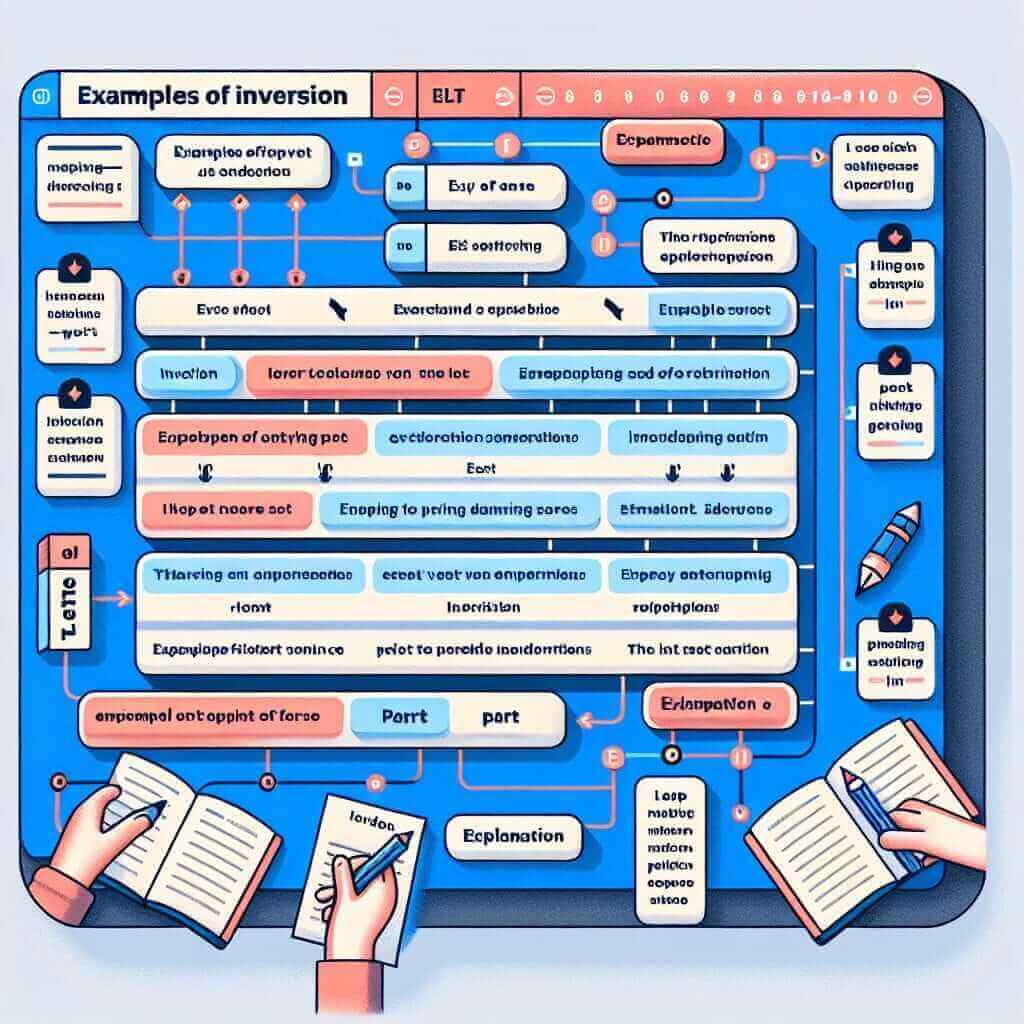Have you ever come across a sentence like “So engrossed was he in the book that he didn’t hear the doorbell?” This unusual word order might seem strange at first, but it’s actually a powerful grammatical tool for adding emphasis and sophistication to your writing and speaking. This structure, known as inversion, is particularly useful for IELTS, where demonstrating a mastery of complex grammar can significantly boost your score.
Let’s look at a few examples of how inversion can be used in different sections of the IELTS exam:
Speaking (Part 2: Describe a memorable event): “The music began, and so caught up in the excitement was I that I forgot all about my nervousness.”
Writing (Task 2: Opinion Essay): “Some argue that technology isolates people. However, so beneficial are its applications for communication that I believe it actually brings us closer together.”
Listening (Section 3: Academic Discussion): “The professor argued that, so significant was the discovery, it would rewrite history books.”
In each of these examples, the inverted structure highlights a particular feeling or idea, making the language more impactful and memorable. Let’s explore this grammatical concept in detail.
Deconstructing Inversion: Form and Function
Inversion involves reversing the typical subject-verb order in a sentence. We usually say “She was so delighted…”, but by inverting it to “So delighted was she…”, we create a more dramatic and emphatic effect.
When and How to Use Inversion
Inversion is typically used with:
- So + adjective/adverb… that: This structure emphasizes the degree of something, often leading to a consequential clause.
Formula: So + adjective/adverb + auxiliary verb + subject + main verb
Example: “So rapidly did the technology evolve that many struggled to keep up.” - Such + noun… that: This structure emphasizes the extent or magnitude of something, also leading to a consequential clause.
Formula: Such + be + noun (phrase) + that
Example: “Such was the beauty of the landscape that they decided to extend their trip.” - Negative adverbials: These include words like “never,” “rarely,” “hardly,” “scarcely,” “no sooner,” and “not only.”
Formula: Negative adverbial + auxiliary verb + subject + main verb
Examples:- “Never had I seen such a spectacular sunset.”
- “Hardly had she finished speaking when the audience erupted in applause.”
- “Not only did he win the race, but he also set a new world record.”
- Only + time expression/prepositional phrase: This structure emphasizes a specific time or condition.
Formula: Only + time expression/prepositional phrase + auxiliary verb + subject + main verb
Examples:- “Only after years of research did they find a cure.”
- “Only in complete darkness can you see the stars clearly.”

Inversion in Action: IELTS Examples
Let’s examine how to effectively incorporate inversion into different sections of the IELTS exam:
Writing (Task 2: Discuss both views and give your opinion):
Topic: Some people believe that the key to happiness is wealth and material possessions, while others argue that happiness comes from relationships and personal fulfillment. Discuss both views and give your own opinion.
Example: “It is often argued that financial security is paramount to happiness. While it is undeniable that money can provide comfort and security, so much more profound is the joy derived from meaningful connections and a sense of purpose. Therefore, I firmly believe that…”
Speaking (Part 3: Two-way discussion):
Examiner: Do you think it’s important for people to have hobbies?
Candidate: “Absolutely! Life can become quite monotonous without them. In fact, so vital is having a creative outlet that I believe it directly contributes to our overall well-being and happiness.“
Reaching for a Higher Band: Nuances and Alternatives
- Formal Register: Inversion is generally considered more formal and literary. While suitable for writing and some speaking situations, be mindful of your tone. Don’t overuse it, especially in casual conversations.
- Alternatives: You can achieve similar emphasis using other grammatical structures like cleft sentences (“It was the music that made her forget her nervousness”) or fronting adverbials (“Clearly, technology has revolutionized communication”).
- Avoiding Errors: Inversion requires careful attention to subject-verb agreement. Double-check that your verbs agree with the subjects that follow them.
Common Pitfalls to Avoid
- Incorrect Word Order: Placing elements in the wrong order is a common mistake. Always ensure the auxiliary verb comes before the subject.
Incorrect: “So beautiful the sunset was that…”
Correct: “So beautiful was the sunset that…” - Overuse: Using inversion too frequently can make your writing sound unnatural and forced. Use it judiciously for maximum impact.
Mastering Inversion for IELTS Success
Understanding and utilizing inversion can be a valuable asset for achieving your desired IELTS score. It allows you to demonstrate a sophisticated grasp of grammar, add emphasis to your ideas, and make your language more engaging and memorable. Remember to practice incorporating this structure into your writing and speaking, paying close attention to the correct word order and using it strategically for maximum effect.